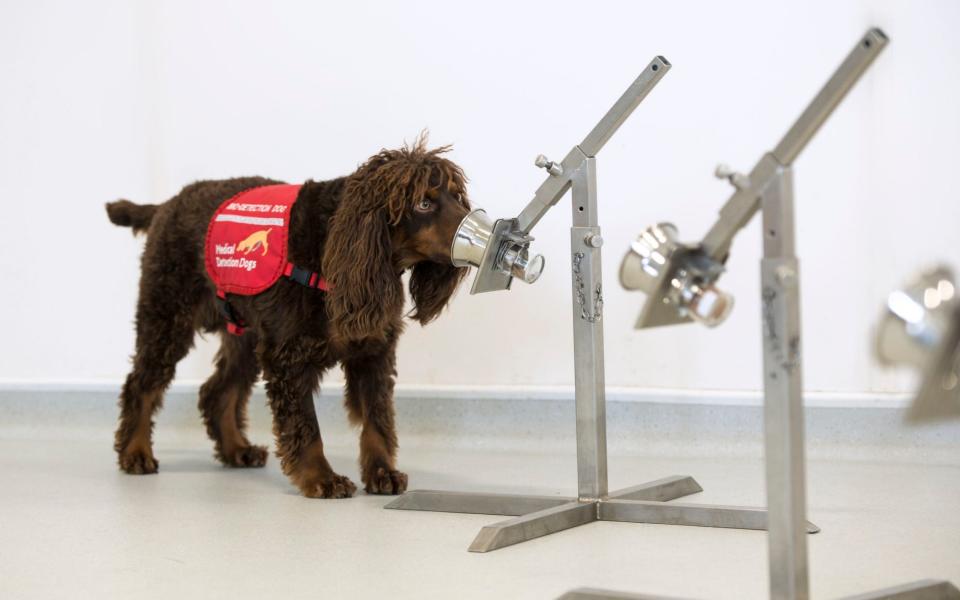Covid-19 sufferers asked to donate sweaty clothes to help train virus-detecting dogs

Covid-19 sufferers who are displaying only minor symptoms have been asked to donate their sweaty clothes to help train dogs to detect the virus.
The unusual call was issued in the North West, where scientists are hoping the rising infection rate could present an opportunity to examine whether dogs can pick up the scent of asymptomatic carriers.
Medical detection dogs have proved effective at sniffing out other conditions, such as cancer, and will be presented with so-called “odour samples” as part of a testing programme.
It comes after a government-backed initiative was launched in May at the London School of Hygiene and Tropical Medical (LSHTM) to intensively train up three cocker spaniels, two labradors and a labradoodle.
There could be huge implications if the dogs can successfully turn their nose to Covid-19 in both medical settings and for use in the wider public.
Researchers said the sniffer dogs could help screen 250 people an hour to help identify asymptomatic sufferers.
As part of the trial, which LSHTM is leading in in collaboration with the charity Medical Detection Dogs and Durham University, people in the North West are now being asked to contribute.
The region has seen a particularly sharp upswing in the number of Covid-19 cases in recent weeks, leading parts of Greater Manchester and east Lancashire to be placed on lockdown.
Patients who have mild Covid-19 symptoms and are due to have a swab test, or have had a swab test conducted in the previous 24 hours, are being recruited by researchers.
The volunteers will provide samples of breath and body odour by wearing a mask for three hours, and nylon socks and a T-shirt for 12 hours.
Researchers hope to collect 325 positive and 675 negative samples, putting them in a position to fully test the dogs for accuracy.

Samples from NHS volunteers and their families are also being collected.
LSHTM researchers will analyse the samples to identify compounds in odour that signify when someone is infected with Covid-19.
The samples will then be sent to the Medical Detection Dogs' training centre in Milton Keynes where the animals will undergo training to identify the virus samples.
"If successful, this trial could revolutionise how we diagnose the virus," professor James Logan, project lead and head of the Department of Disease Control at LSHTM, said.
"Rapid screening of high numbers of people, even if asymptomatic, will help return our lives back to some sort of normality."
It is hoped that if the trial is successful the dogs can be used at UK airports to screen people arriving from abroad.
Claire Guest, chief executive of Medical Detection Dogs, added: "It is vital that we train our dogs to detect the odour of Covid-19 as soon as possible so we can help ensure people move about freely and safely.
"The latest travel disruptions further highlight the difference the dogs could make. Public support is essential in making this possible.
"Anyone who assists us by providing samples will be playing a part in creating a fast, effective and non-invasive diagnosis for the virus and safer spaces for us all."
Professor Steve Lindsay, from the Department of Biosciences at Durham University, said: "If we can show that our trained dogs can identify people carrying the virus, but who are not sick, it will be a game changer.
"We will then be able to scale-up the use of dogs at ports of entry to identify travellers entering the country with the virus. This could be very important to help prevent a second wave of the epidemic."
People who think they could be eligible to help with the study are being encouraged to call 0207 927 2777.

